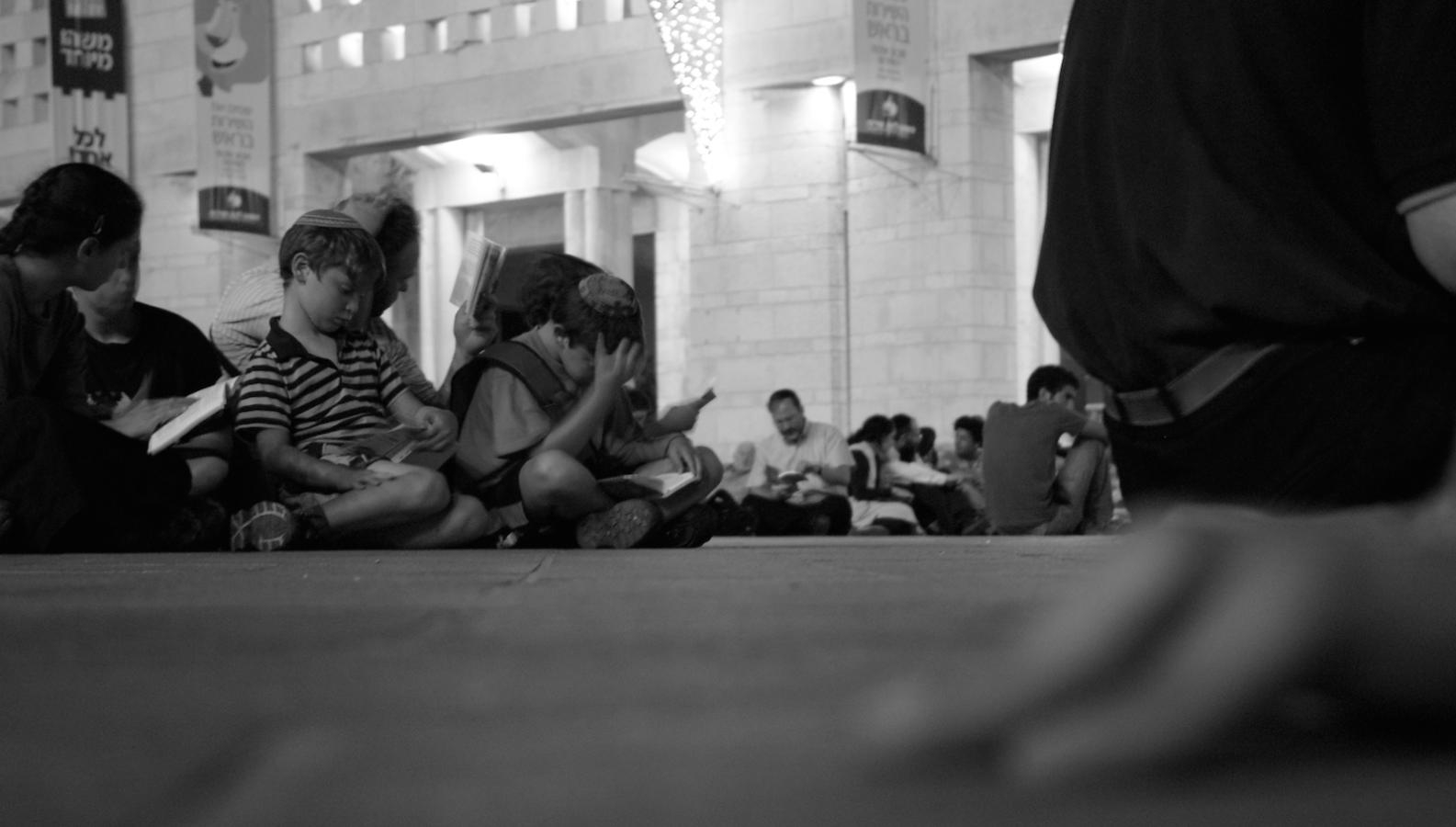Instead of the regular siddur [prayer book] we use a special prayer book for Tisha B’Av, Kinot (Elegies), which contains the prayer services (Maariv, Shachrit and Mincha , the evening, morning, and afternoon services), the text of Lamentations, a selection of additional elegies, and the scriptural readings for the day. Copies are usually provided by the synagogue or service organizers.
Find Tisha B’Av prayers and readings here.
Most of the kinot chanted after Eicha (Lamentations) were composed during the difficult times of the Crusades and the Spanish Inquisition. Describing the transgressions of the Jews and their love for Israel, the most popular ones were written by Elazar Hakallir (the eighth-century liturgical poet), Judah Halevi (1085- 1145, the Spanish philosopher also considered to be the greatest post-biblical poet), and Solomon ibn Gabirol (another product of the Golden Age of Spain, 1021-1058).
Embodying a timeless quality that has given them lasting impact in the liturgy, they express the prayers and dreams of a persecuted people who look to God for hope. Often in acrostic or altered acrostic form, they frequently draw on imagery from Talmud and Midrash.
With your help, My Jewish Learning can provide endless opportunities for learning, connection and discovery.
Most liturgies begin with a kinah of Hakallir, and end with a series known as Zionides, which extol the glory of Zion. In a favored elegy, written by Halevi, the poet expands on Jeremiah’s vision of the weeping woman identified as the matriarch Rachel (Jeremiah 31:15). He imagines himself walking on Jerusalem’s holy ground and encountering Mother Zion, who asks about the welfare of her children throughout the world.
Other kinot recited were written in response to tragedies in Jewish history. One commemorates the public burning of the Torah in Paris, another the massacres of German Jews during the first Crusade, another the slaughter of the Jews of York, and a recent one the annihilation of European Jewry in the Holocaust.
Excerpted with permission from Celebrate! The Complete Jewish Holiday Handbook (Jason Aronson Inc.).
Talmud
Pronounced: TALL-mud, Origin: Hebrew, the set of teachings and commentaries on the Torah that form the basis for Jewish law. Comprised of the Mishnah and the Gemara, it contains the opinions of thousands of rabbis from different periods in Jewish history.
Torah
Pronunced: TORE-uh, Origin: Hebrew, the Five Books of Moses.
siddur
Pronounced: SIDD-ur or seeDORE, Origin: Hebrew, prayerbook.



